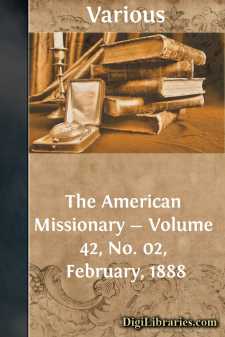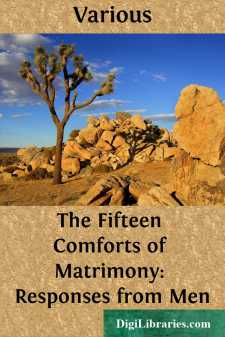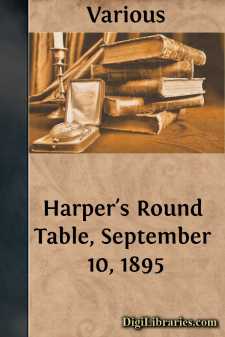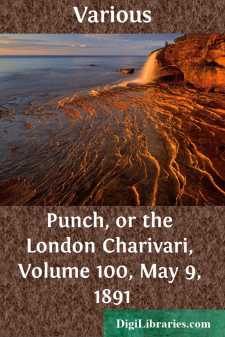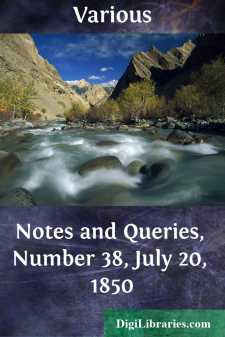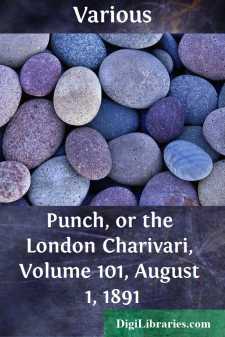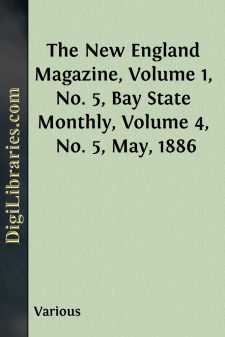Categories
- Antiques & Collectibles 13
- Architecture 36
- Art 48
- Bibles 22
- Biography & Autobiography 813
- Body, Mind & Spirit 142
- Business & Economics 28
- Children's Books 17
- Children's Fiction 14
- Computers 4
- Cooking 94
- Crafts & Hobbies 4
- Drama 346
- Education 46
- Family & Relationships 57
- Fiction 11829
- Games 19
- Gardening 17
- Health & Fitness 34
- History 1377
- House & Home 1
- Humor 147
- Juvenile Fiction 1873
- Juvenile Nonfiction 202
- Language Arts & Disciplines 88
- Law 16
- Literary Collections 686
- Literary Criticism 179
- Mathematics 13
- Medical 41
- Music 40
- Nature 179
- Non-Classifiable 1768
- Performing Arts 7
- Periodicals 1453
- Philosophy 64
- Photography 2
- Poetry 896
- Political Science 203
- Psychology 42
- Reference 154
- Religion 513
- Science 126
- Self-Help 84
- Social Science 81
- Sports & Recreation 34
- Study Aids 3
- Technology & Engineering 59
- Transportation 23
- Travel 463
- True Crime 29
Sort by:
by:
Various
DEATH OF REV. JAMES POWELL, D.D. "He whom thou lovest is dead," were the sorrowful words of the stricken sisters concerning their brother; we repeat them to our many friends who enjoyed the personal friendship of our beloved brother Powell. These friends cannot restore him to us, as the Friend restored Lazarus to his family; but they can sympathize with us in our great bereavement. It is...
more...
by:
Various
The First Comfort of Matrimony.Happy were Man, when born as free as Air,Did he that freedom as he ought, prefer;But the first Thing he sets his Heart upon,Is to be Married, and to be undone:On some youngGirlhe casts his wanton Eyes,And wooes her with fine Complements and Toys.But that's not all—he grows in Love at last,And is impatient till those Joys he taste:Nor do's the wishing Virgin...
more...
by:
Various
GENIUS. When Paul Morphy plays seven games of chess at once and blindfold, when young Colburn gives impromptu solution to a mathematical problem involving fifty-six figures, we are struck with hopeless wonder: such power is separated by the very extent of it from our mental operations. But when we further observe that these feats are attended by little or no fatigue,—that this is the play, not the...
more...
by:
Various
EACH IN HIS GENERATION BY MAXWELL STRUTHERS BURT From Scribner's Magazine Every afternoon at four o'clock, except when the weather was very bad—autumn, winter, and spring—old Mr. Henry McCain drove up to the small, discreet, polished front door, in the small, discreet, fashionable street in which lived fairly old Mrs. Thomas Denby; got out, went up the white marble steps, rang the bell,...
more...
by:
Various
Guard-mounting was over. The commanding officer in the Adjutant's office was occupied with the daily routine business of a frontier post. At tables near him sat the Post-Adjutant, the acting Sergeant-Major, and a soldier clerk, writing and making up the semi-weekly mail for the post-office beyond the neighboring river. Upon a bench outside the door, serving his tour as office orderly, lounged a...
more...
by:
Various
MARRIAGE CONTRACT OF MARY QUEEN OF SCOTS AND THE EARL OF BOTHWELL. [Among the curious documents which have been produced from time to time before the House of Lords in support of peerage claims, there have been few of greater historical interest than the one which we now reprint from the Fourth Part of the Evidence taken before the Committee of Privileges on the Claim of W. Constable Maxwell, Esquire,...
more...
by:
Various
A FIRST VISIT TO THE "NAVERIES." "Shiver my timbers!" said the Scribe. "Haul down my yard-arm with a marling-spike!" cried the Artist. And with these strictly nautical expressions, two of Mr. Punch's Own entered the Royal Naval Exhibition, which now occupies the larger portion of the grounds of the Military Hospital, Chelsea. That so popular a show should be allowed to...
more...
by:
Various
NOTES. WHAT IS THE MEANING OF "DELIGHTED," AS SOMETIMES USED BY SHAKSPEARE. I wish to call attention to the peculiar use of a word, or rather to a peculiar word, in Shakspeare, which I do not recollect to have met with in any other writer. I say a "peculiar word," because, although the verb To delight is well known, and of general use, the word, the same in form, to which I refer, is...
more...
by:
Various
THE PRINCE. (A Letter from Nicola Puncio Machiavelli to the Most Illustrious Vittorio Emanuele, Son of Umberto, King of Italy.) I. There never was, nor is at this day, any man in the world who is not either a Prince or not a Prince. Seeing, therefore, that your Highness appertains of right to the class of them that are Princes, and being ambitious to present to your Highness that which should have the...
more...
by:
Various
The plan for the establishment of a second college in Connecticut was not carried into effect until after the time of the political and religious revolution which secured the adoption of a State Constitution in 1818. Probably no such plan was seriously entertained till after the close of the war of Independence. The Episcopal church in Connecticut had, one may almost say, been born in the library of...
more...


